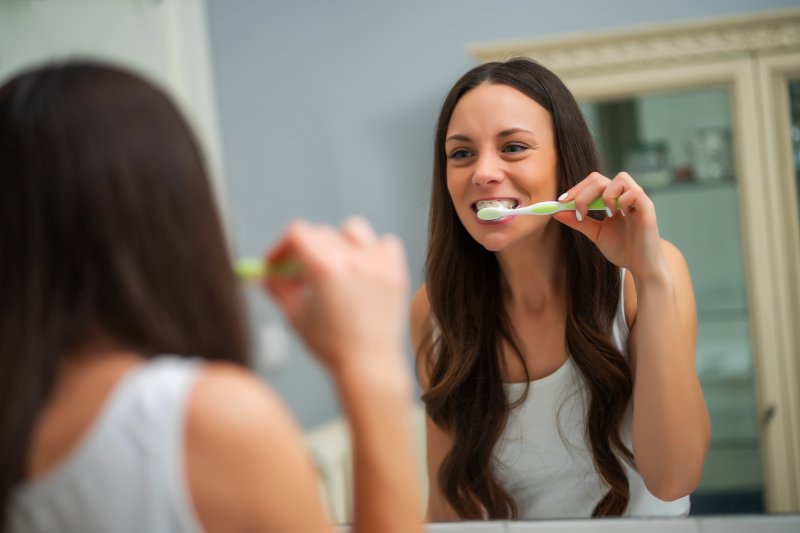Keep It Clean: Toothbrush Techniques from Your Lynchburg Dentist
April 4, 2020

You wouldn’t do your dishes with a dirty sponge. Why would you clean your teeth with a dirty toothbrush? Every time you brush your teeth, you’re passing on bacteria, half-eaten food, and, if you’re sick, maybe even a virus. Though it may not be something that many people are actively thinking about, consulting a dentist in Lynchburg will give you some tips to keep you and your mouth as healthy as possible.
Daily Use: Keeping Your Smile Fresh
Think of your toothbrush as a paintbrush. Just like a painter will wash their brushes after each use, so should you rinse your toothbrush each time you brush your teeth. After you’ve finished brushing your teeth for two minutes twice each day, it’s time to do the following:
- Take the time to rinse your toothbrush with clean water.
- Ensure that any remaining toothpaste residue and food particles have been washed away.
- Avoid using toothbrush covers. Your brush should be allowed to dry so that doesn’t become a breeding ground for bacteria. Simply place your brush head-up and let the air do the rest.
- Replace your toothbrush or toothbrush head regularly. Many brushes have indicators to let you know when it’s time to switch them out. The ADA recommends replacing your toothbrush every three to four months.
Deep Cleaning: Going the Distance
For additional safety, it may be advisable to do a more thorough cleaning of your toothbrush, especially after an illness. Though this may seem like overkill to some, it will help you to avoid re-catching a virus or spreading it to anyone you live with.
While there are a number of ways to do this, the ADA has stated that a simple soak in mouthwash or 3% hydrogen peroxide can be effective when disinfecting your toothbrush. Studies have shown that this can decrease the number of bacteria on your toothbrush by up to 85%.
Here’s what NOT to do:
- Dishwash your toothbrush
- Microwave your toothbrush
- Use non-FDA approved UV sanitation devices
The non-approved methods above may harm your toothbrush and diminish its capacity to effectively clean your mouth.
If you are able to implement these simple but effective methods into your oral care regimen, they will go a long way towards improving the health and longevity of your smile.
About the Author
Dr. James Peery III believes that a conservative approach to dentistry is the best approach. He takes great care to educate his patients during each visit to make sure that their home habits can help them to maintain lifelong smiles. His commitment to continuing education ensures that he is able to offer the most modern, effective advice. From the youngest dental patient to seasoned veterans of the dental chair, everyone deserves their very best smile. If you’d like to learn what other tips and tricks Dr. Peery and his team can offer you, give them a call or email.
No Comments
No comments yet.
RSS feed for comments on this post.
Sorry, the comment form is closed at this time.
